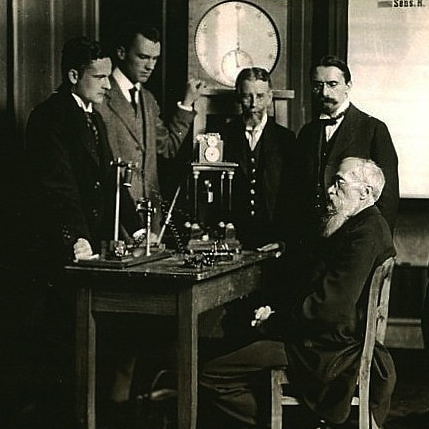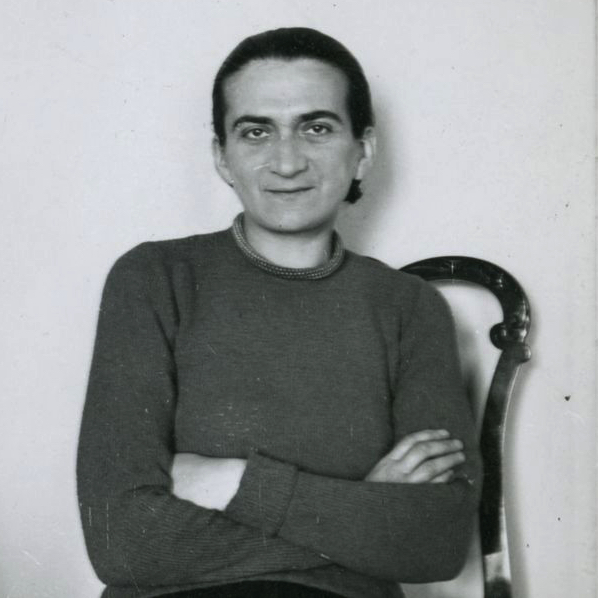Projects
-

Exiled Empiricists: American Philosophy and the Great Intellectual Migration
In the 1930s, hundreds of European academics fled to the United States, escaping the quickly deteriorating political situation on the continent. Among them were a few dozen philosophers from a variety of schools: logical empiricists, critical theorists, and phenomenologists. Especially the first group would have a tremendous impact on American philosophy. Whereas the local intellectual climate had been dictated by American traditions like pragmatism, U.S. philosophers soon began to advance views that were heavily indebted to the empiricists. In fact, much of academic philosophy today is still shaped by the discussions and practices first instigated in this disruptive period.
Although historians have reconstructed the fate of the exiled empiricists, little attention has been paid to the American context in which their movement came to full bloom. This is surprising, since any account of the empiricists’ success requires an explanation of why the Americans were so receptive to their views. To what extent did developments in American philosophy pave the way for logical empiricism? And why was the American community more receptive to empiricism than to critical theory or phenomenology? This project shifts the perspective from the refugees to the local philosophical climate by 1) quantitatively analyzing thousands of American journal publications and 2) qualitatively examining the archives of dozens of key American philosophers and institutions.
In studying the unique American melting pot of philosophical traditions (pragmatism, logical empiricism, critical theory, phenomenology) in the wake of the intellectual migration, this project offers a more inclusive history of analytic philosophy, the tradition that pervades much American and European philosophy today. In fact, this project helps us to rethink the very distinction between ‘analytic’ and ‘continental’ approaches, showing that this deep and unfruitful divide originated in a period when American philosophers tried to make sense of the rapidly changing philosophical landscape.
Project website -

Who is Afraid of Psychology? Reconstructing and Reconsidering the Psychologism Debate
Today, the distinction between philosophy and psychology is commonplace. Only one hundred and fifty years ago, however, there was still a fierce and important debate about whether logic, perception, and the mind could be studied empirically. While many philosophers argued that using empirical methodology led to conflating the laws of the mind with the laws of logic, the experimental psychologists disagreed and argued that experimental psychology was to be distinguished from philosophy. This discussion is called the psychologism debate and occupied academics from the middle of the nineteenth century to the First World War.
Existing research on the psychologism debate has predominantly focused on German academia and canonized philosophers like Husserl and Frege, thereby ignoring the very figures to which these philosophers were responding such as the Dutch psychologist Heymans. This project aims to give a more inclusive account of the debate. Using a unique combination of quantitative tools (co-citation and co-occurrence analysis) and qualitative methods (conceptual analysis and archive study), this project is able to provide a comprehensive overview of the community of philosophers and psychologists in continental Europe, and thereby to include forgotten psychologists and philosophers as well as participants from understudied countries such as the Netherlands and Poland.
As such, this project is able to (1) advance novel hypotheses on the development of terminology and the exchanges between philosophers and psychologists, (2) reconstruct the broader European academic community in which the psychologism debate took place, and (3) reconsider the foundations of the distinction between philosophy and psychology. -

Re-weaving the tapestry of history: Rose Rand and the Vienna Circle
Rose Rand was a Polish-Jewish philosopher who was an active member of the Vienna Circle between 1924 and 1938. Although Rand’s work anticipated important developments in logic and the philosophy of language, her views were largely ignored by the philosophical world. Despite her collaboration with influential philosophers like Karl Popper and Ludwig Wittgenstein, she never obtained a permanent academic job and had to work in, among others, a machine factory to make a living.
The Vienna Circle’s philosophical views, which dominated analytic philosophy and the behavioral sciences between the two World Wars, have been extensively studied. Still, Rand’s story shows that we have a very limited understanding of the socio- epistemological context in which these ideas were developed. What was the role of women in the Vienna Circle? And what was their contribution to the Circle’s evolving philosophical doctrines?
In this project, I take the first steps towards answering these questions by disclosing Rand’s unexamined academic and personal archives, collected at the University of Pittsburgh. Using Rand’s published work as well as her correspondence and her notes of the meetings of the Vienna Circle, this project aims (1) to reconstruct Rand’s life and work; (2) to explicate her influence on the Vienna Circle through her work on logic and the philosophy of language, and (3) to use these findings to develop a comprehensive account of the Circle’s socio-epistemological dynamics. As such, this project provides the pivotal first steps towards a more inclusive account of one of twentieth-century’s principal philosophical movements. -

Matter over Mind: Skinner, Quine, and the Heyday of Behaviorism
In the mid-twentieth century, psychology and philosophy were dominated by behaviorism. The leading psychologist was B.F. Skinner, the chief philosopher was W.V. Quine; both Harvard professors who would grow up to be among the most prominent scholars of their time. Skinner is widely considered to be the most influential twentieth- century psychologist, whereas philosophers have reckoned Quine to be the most important Anglophone philosopher between 1945 and 2000.
Although Skinner and Quine are both known for applying their behavioristic frameworks to the study of language, surprisingly little is known about the relation between the two, apart from the fact that they were close friends. How did Skinner and Quine develop their psychological and philosophical varieties of behaviorism? And in what ways did they influence each other?
In this project, I will answer these questions by means of a careful examination of Skinner’s and Quine’s personal archives. In collaboration with Harvard University and the B.F. Skinner Foundation, I will explain (1) how they developed their highly influential views, (2) the ways in which they were influenced by each other and the psychologists and philosophers of their time, and (3) how their views evolved when Noam Chomsky launched his searing attack on behaviorism.
Because historians predominantly focus on developments within psychology and philosophy, historical connections between these disciplines tend to be overlooked. Most studies in the history of analytic philosophy, for example, primarily focus on evaluating important philosophical arguments, not on analysing the scientific context in which these arguments developed. In studying the interconnections between Skinner and Quine, this project aims to lift the departmental boundaries that have shaped much of the historiography of twentieth-century science and philosophy and to deepen our understanding of the work of a leading psychologist and a major philosopher during a crucial episode in the history of science.
Selected publications:
Verhaegh, S. (2021). Psychological Operationisms at Harvard: Skinner, Boring, and Stevens. Journal of the History of the Behaviorial Sciences, 57:2, pp. 194-212.
Braat, M., Engelen, J., van Gemert, T., and Verhaegh, S. (2020). The Rise and Fall of Behaviorism: The Narrative and the Numbers. History of Psychology, 23:3, pp. 1-29.
Verhaegh, S. (2019). The Behaviorisms of Skinner and Quine: Genesis, Development, and Mutual Influence. Journal of the History of Philosophy, 57:4, pp. 707-730.
Verhaegh, S. (2019). “Mental States are Like Diseases”: Behaviorism in the Immanuel Kant Lectures. In Sinclair, R. (ed.). Science and Sensibilia by W.V. Quine: The 1980 Immanuel Kant Lectures. Palgrave-Macmillan, pp. 157-180.
Verhaegh, S. (2018). Working from Within: The Nature and Development of Quine’s Naturalism. Oxford University Press.